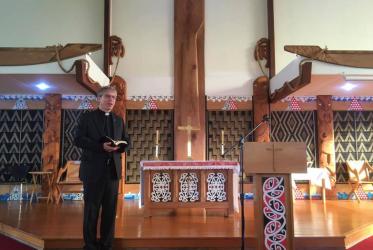Displaying 1 - 20 of 20
26 February 2020
CCIA meets in Brisbane with focus on Pacific regional priorities
19 February 2020
A voice for peace from Down Under
10 July 2017
WCC general secretary visits Aotearoa New Zealand
10 October 2016
New Executive Committee members elected in Trondheim
28 June 2016
WCC Executive Committee speaks out on migrant crises
12 June 2015
Religious leaders urge a ban on fully autonomous weapons
02 April 2015







